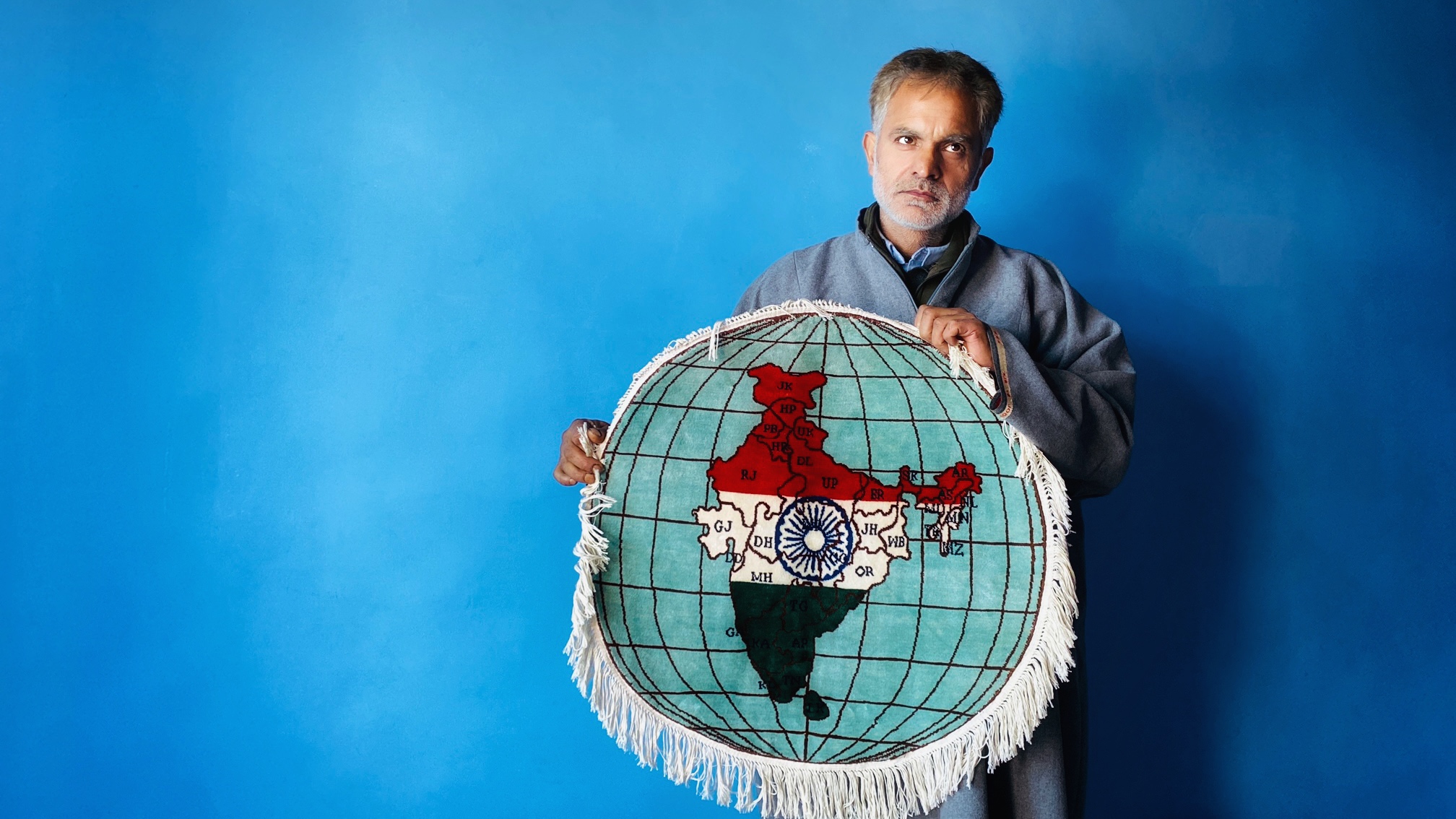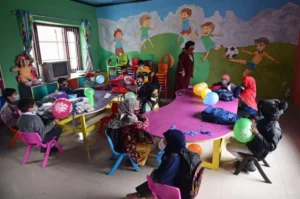Kulgam Award Winner Revives Kashmir’s Hand-Knotted Carpet Craft and Empowers Women

In the heart of South Kashmir’s Kulgam district, Mohd Ashraf Naik, a master craftsman from Bhan village, is on a mission to preserve the ancient art of hand-knotted carpet weaving. For over three decades, Naik has devoted his life to the craft, elevating the age-old tradition that has long been a hallmark of Kashmir’s cultural heritage.
Naik’s artistry has earned him recognition at both regional and state levels. His creation, the “Carpet Globe,” was praised by Lieutenant Governor Manoj Sinha, who awarded him for his exceptional contribution to the craft. Naik expressed how the honor strengthen his confidence in his work and reaffirmed his belief that he is preserving a priceless tradition for future generations.
Kashmir’s handmade carpets have been celebrated worldwide for centuries, with each knot representing a blend of creativity, patience, and culture. However, the rise of modern technology poses a serious threat to this centuries-old art form. In response, Naik has dedicated his efforts to ensuring the survival of traditional hand-knotted carpets, ensuring they remain relevant in a fast-changing world.
Born into a family of weavers, Naik’s journey as a craftsman began under the guidance of his uncle. Over the years, his passion and skill have made him one of the most respected artisans in the region. What sets Naik apart is not only his craftsmanship but also his commitment to passing on the skills to younger generations. To date, Naik has trained more than 300 aspiring artisans, many of whom were unemployed youth looking for a means to earn a living and contribute to the community. His training programs, particularly for women, have given them an opportunity to sustain themselves and contribute financially to their households.
Sarwa, a local trainee at Naik’s Training centre , shared how the training has empowered her and many other women. “We receive a stipend of Rs. 1,000 from the government, and after we master the craft, we can work from home. This provides us with a good livelihood and helps us support our families,” she said. “At a time when the cost of living is rising, it’s essential for women to have financial independence.”

Naik’s work has also gained support from the local government. The Karkhandar Scheme, an initiative aimed at reviving traditional crafts, provides stipends and monthly allowances to both artisans and master trainers. As part of this program, Naik has become a mentor to many, guiding them to not only learn the craft but also to embrace its cultural significance.
For Naik, the art of carpet weaving is not just about making a living—it’s about preserving a cultural legacy. “This craft is part of our identity. I want to continue training more artisans, especially women, so that they too can carry forward our heritage while earning a sustainable livelihood,” he said.
As Naik continues to weave his next masterpiece, he remains steadfast in his mission to preserve Kashmir’s rich carpet weaving tradition, ensuring that it will thrive for generations to come.





